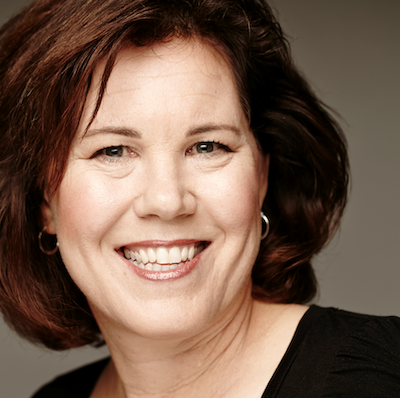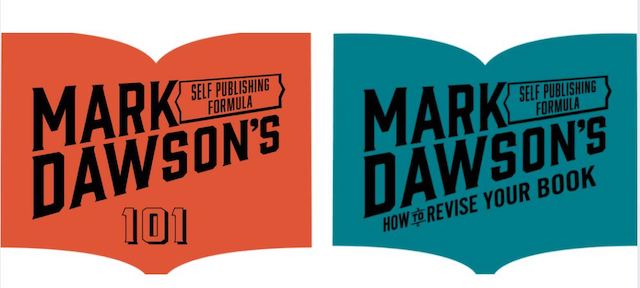
We love hearing from writing experts here at ProWritingAid. We reached out to Book Coach Jennie Nash for her top writing tips, and she didn't disappoint.
Keep reading to find out the five questions you can ask yourself to help you to understand why you're writing your book. You'll produce a more coherent manuscript that readers (and editors!) will love.
If you'd like to learn more, catch up on the replay of our webinar with Jennie, where she explored these questions in even more detail. If you're thinking of writing a book, it's a training session you won't want to miss.
Now, over to Jennie.
I run a company that trains book coaches. To make the training efficient and effective, I look for patterns in the creative process – the things that writers get wrong repeatedly.
The most frequent mistake we see – and one of the costliest in terms of time lost and frustration felt – is when writers don’t think before they write.
This is what that looks like for a novelist:
- They get a great idea and can see the entire story in their mind, so they immediately start to write what happens (the plot)
- As they write forward, they focus on productivity habits (writing every day, hitting certain word-counts) and on key craft skills (what makes a good antagonist, how to write great descriptions, how to make their dialogue snappier)
This is all good work, solid work, and the kind of work other writers often talk about on social media, so it baffles them when the story they have created doesn’t capture the attention of agents, editors, or readers.
Where did they go wrong?
The mistake happened way back at the very beginning of the process before they wrote the first word. The mistake was that they built their book on a shaky foundation.
There are five foundational questions I believe you must answer about your story before you get to questions of character and plot.
Question 1: Why are you writing this story?
If you’re like most writers, your story has been haunting you for quite some time. It keeps you up at night. It nags at you when you are reading other people’s stories. It pops into your head at inconvenient times. It wants to be told.
You need to know why you think it’s haunting you. Why do you even care? Why THIS story and not the next story that pops into your head?
If you can articulate your motivation, it will show up on every single page of your story. Your readers will never be able to see it or point to it, but they will feel it because it will drive everything.
I believe that not knowing the answer to "why" is one of things that holds a lot of writers back. They know they like to write; they know they’re good at it; they know they have a story to tell – but they don’t know why it matters to them or what, exactly, it means to them.
As a result, they write a book that doesn’t ever get down to anything real, raw, and authentic. They write pages that skate along the surface of things. The story might have a good plot, a cool protagonist, or killer descriptions, but if the reader senses that there’s nothing more to the story, they’re not going to stick with it for more than a few chapters.
How you can find your "why"
Take action. Write one page on why you are writing this story. Be as honest as you possibly can about what is calling you to this particular tale.
Are you angry about something? Feeling a sense of injustice? Wishing you had more power or more control? Missing the sweet days of summer? Or childhood?
Write it down. Make it real. And then write from that deep-level "why."
Question 2: What is your goal?
Before I start working with any writer, I ask them what their goal is.
People often have a vague idea about success, but they have not examined it. As a result, they default to socially accepted metrics such as "get published." But this doesn’t mean anything.
Published how? Does self-publishing count? Or are they talking about a traditional publisher? And if so, does any traditional publisher count? Or only one of the Big 5? And does it matter how big or small their advance is?

A writer can’t hit their goal if they don’t know what the target is. Different goals will dictate a different path for the writer. Someone who wants to leave a legacy for their family may take a different path than someone who wants to make enough money to leave their day job. Someone who is burning to write the story and doesn’t care about anything other than finishing it may take a different path than someone who wants to make a name for themselves in the industry.
Getting clear on these answers will let you write forward with a clear intention. This is, again, something the reader will never see, but it comes across in the work. I have coached writers who want each of these things. The knowledge of their goal comes into play at every turn as they plan their story, plan out the project, and choose a publishing path. When the writer doesn’t know what they want out of the work, it can cloud their intention. And a cloudy intention often results in a cloudy outcome.
Find your reason for writing
Some common reasons for wanting to write include these:
- To make money
- To make a name for myself as an expert/authority
- To influence/educate/illuminate/comfort/entertain people
- To raise my voice/speak up/claim my story
- To prove that I can do it, either to myself or others
- Because I feel called to do it/I am burning to do it/I can’t rest until I do it
- To leave a legacy for my family
- To model for my kids what it means to pursue a dream (hard work, frustration, failure, perseverance, etc.)
Take action: Start by checking all the boxes on this list that apply. Then drill down into each one of them individually.
If your goal is to make money, have you researched how money flows in publishing? Do you know what it costs a writer to invest in their success and what they are likely to receive in the various publishing models? Or are you just closing your eyes and hoping for the best?
If you want to make an impact, who else is making an impact in that space? What does an impact look like? How will you measure it? Is it changing one person’s life? Is it starting a social movement?
Question 3: Who are you writing for?
Beginning writers tend to answer this question by saying something broad, like "moms," or "women who read book club books," or the dreaded "everyone." Suffice it to say, if you think your book will appeal to everyone, it’s going to end up appealing to no one. Defining your ideal reader is the first step towards reaching them.

Note that I’m not talking about knowing how old your reader is or where she lives – although naming those physical realities can sometimes help visualize who they are. I’m talking about knowing why your reader is coming to your book.
Readers come to books for a wide range of reasons. I always ask my writers to imagine that their reader is in some kind of pain and explain that their job is to alleviate that pain. The readers’ pain might be boredom or restlessness, confusion or yearning. They might be looking for entertainment, humor, or escape. Or perhaps what they really want is insight, inspiration, and instruction.
If you know what your reader wants, you can give it to them, and satisfy them – and as we all know from our own reading, a satisfied reader is one who will tell all their friends to read the book.
If you don’t know what your reader wants, you’re just taking a shot in the dark and hoping that some readers connect with what you have written. In a crowded, noisy world, it’s not a great bet.
How to find your target reader
Take action: Ask yourself the following questions about your ideal reader. The more specific you can be about your answers, the better. Some people like to picture an actual individual as their ideal reader – their Aunt Sally, or their friend from the gym, or their son. If such a person comes to mind, use that person as an avatar:
- What keeps her up at night?
- What does she want more than anything in the world?
- What can your book do to help her get it?
Question 4: What point is your story going to make about the world?
Thinking about this can stress people out, so I get it if you’re panicking a little right now. ("My POINT? I don’t have a point! I just have this nagging idea about a character who makes layer cakes!") But chances are excellent that the reason your story is nagging at you is that you have something to say through this story – something about life or love or sports or crime or God or death or magic. If you didn’t have something to say, you would probably be spending your days knitting or planting zucchini instead of trying to write a book.
Don’t be alarmed if the point you want to make sounds like a cliché. There are a vast number of stories that can be told with the point Love conquers all, or Technology is evil, or Cheaters never prosper. When you can frame your idea as a cliché, it means you’re getting down to something universal. You will make it specific through the specifics of your story – through structure, shape, and voice – so there’s no need to worry about it being obvious.
If you have trouble with this concept, try to think about the fact that you are making an argument. Every book is, at heart, an argument for something – for a belief, a way of life, a vision of the future, a way to solve a problem, a way to make a friend, a way to lose your soul.
Take action: Write one or two lines about the point your story is making.
Question 5: What does my point mean for my plot?
Once you know your point, it will drive everything else in the story.
Not sure where to start? If your story is going to prove that technology is evil, then at the start of your story, your character will be engaged with the idea that technology is good.
Not sure what forces of opposition or conflict to bake in? If your story is going to prove that cheaters never prosper, you will design conflict that pushes your character to grapple in some way with cheating.
Not sure where to end? If your story is going to prove that it’s better to have loved and lost than never to have loved at all, your story is going to end with your character losing love and feeling okay about it.
Marrying plot to point can help you lock down the entire structure of your book.

Keeping your focus
I use a tool I made called the Inside Outline to help writers develop this spine for their story by creating a plot and a point pairing for every major scene in the book. It’s just 2 pages long.
It takes the most important scenes of the story – think of them as the tent-pole scenes that hold the story up – and ties them together in a cause-and-effect trajectory (a term my friend and client Lisa Cron coined in Story Genius).
The Inside Outline guarantees that whatever happens in your story – a mean girl snub, the race to stop a monster on the loose, the rise and fall of civilizations – will have personal meaning to the protagonist, because in every scene, you know why it matters to them, why they care. This is what makes the reader care at every turn and what adds up to a story they will love.
It looks like this:
- SCENE: something happens
- POINT: why it matters to the protagonist
Because of that…
- SCENE 2: something else happens
- POINT: why it matters to the protagonist
You can download a simple PDF to learn more about the Inside Outline HERE.
The second tier of the Inside Outline – the point – is what is usually missing in novels that don’t work. If you are putting your characters in situations because you need that situation for your story to move forward, or because you think it would be a cool/dramatic/fun addition, it’s going to fall flat. That’s why writers who focus only on the plot often create stories that feel empty. They are missing the underlying oomph.
We read stories to watch someone else make meaning of the things that happen to them. Regular life can so often feel meaningless – we go to Costco, go to the dentist, throw burgers on the grill. Have you ever thought, What’s the point of all this running around? Or on a deeper existential level, What am I doing with my life?
That’s what we come to stories for – to see other people making sense of what can so often feel senseless. To see them making meaning of things. To see them answering the question, What’s the point?
If this sense-making doesn’t happen in your story, odds are good you will lose your reader. Your book will feel too much like the senselessness of daily life. It will feel random, purposeless.
Locking it in before you write can save you years of frustration as you fish around for your plot and your point.
So take action: create a two-page Inside Outline for your story before you even think of starting the writing work.
Conclusion
Once you answer these five questions, you can begin to write forward in your story. The odds are FAR better that you will write something that will hold readers’ attention and satisfy whatever goal you have for your own writing life.
Want to learn more from Jennie Nash?
You can sign up for her course on Self Publishing Formula here:
How to Revise Your Book with Jennie Nash
In this brand new course, Book Coach Jennie Nash will take you through the revision process itself and show you how to recognize when your novel is ready for prime time. With modules to help you build a model of your novel, strengthen your characters, tighten your narrative arc, prioritize your problems and execute fixes. You will come away with a polished manuscript that's ready to put in the hands of readers.
This course also includes a new bonus module on effective copy editing by ProWritingAid's very own Hayley Milliman.


